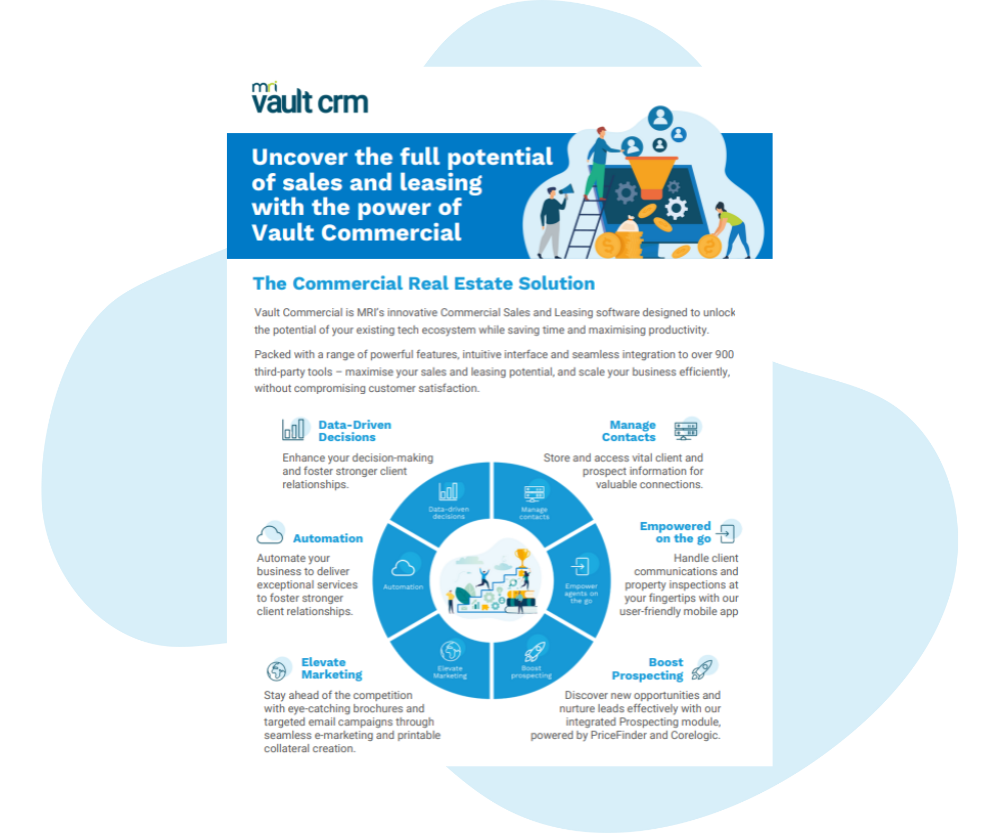10 Key takeaways from voice of the strata manager report
Strata management, a vital yet demanding field within Australia’s robust property sector, is the backbone of harmonious communal living. As MRI Software’s ‘Voice of the Strata Manager Report’ reveals, strata managers are the unsung heroes who ensure the seamless operation of shared residential spaces.
Delving into the findings with Carrie McInerney, CEO of Horner Management, Talia Rebettes, ASCM Senior Strata Manager at Jamesons, and Jessica Kaye, MRI Software, we uncover the personal cost of their dedication, long hours, mental strain, and the constant juggle of complex responsibilities.
This article unpacks ten key takeaways from the report, offering a window into the challenges and triumphs of those at the heart of strata management and the industry’s future trajectory.
Overtime Hours
60% of strata managers work more than 38 hour weeks with 19% working more than 51 hours a week.
In the dynamic realm of strata management, the commitment to service extends well beyond the conventional workweek. Astonishingly, 60% of strata managers in Australia report exceeding the standard 38-hour week, illuminating the demands of this multifaceted role. Even more striking is that nearly one-fifth are dedicating in excess of 51 hours weekly to their profession.
Carrie McInerney, the CEO of Horner Group, had this to say about this concerning statistic:
“51 hours w week is a lot, that is equal to 9 hour days / 6 days per week, which is extremely high. The Strata Managers then have to have conversations with their managers to explain that they are struggling and why. Some might be reluctant to do this, thinking that they lack time management skills, when in fact the work loads are simply getting larger.”
This statistic speaks volumes about the intense workload and the dedication strata managers have to their communities. It also raises pertinent questions about long-term sustainability and the need for supportive measures to ensure the wellbeing of these key industry professionals.
With these kinds of weekly work hours, it’s only natural that people in this profession will experience burnouts. If this is something you struggle with as a strata manager, we recommend you read our article Tips to Avoid Burnout in the Starta Industry: Nurturing Your Well-being for Long-term Success.
Busyness Factor
21% of strata managers stated they are far too busy and another 59% stated that work is on the busy side.
The life of a strata manager is undeniably busy, with a staggering 80% feeling the burden of busyness. It’s a role juggling numerous responsibilities: from maintaining properties and handling legal compliance, through to resolving disputes and managing finances.
Each task demands attention to detail and a proactive approach, often simultaneously. This complexity, coupled with high expectations from property owners, can make their workload intense, leaving little room for pause in a profession where there’s always another urgent task demanding immediate attention.
If you are a strata manager in need of some help streamlining your services, read our article Tips for Effective Strata Committee Management: A Guide for Strata Managers.
The Mental Load
69% of strata managers say managing their workload is their greatest challenge. 32% believe they have no work-life balance.
The statistics reflect an unsurprising reality for strata managers: the mental load is challenging. With 69% identifying workload management as their primary challenge and 32% feeling the pinch of a non-existent work-life balance, it’s clear that the sheer volume and complexity of their duties are taxing.
The figures confirm the well-known narrative of the strata management sector, where the mental toll of balancing a number of responsibilities with personal life is a pressing issue for many professionals.
Jessica Kaye, from MRI Software, believes that the mental load of strata managers is behind a lot of the more concerning results from this report. “Managing the busyness factor and managing their mental health, that’s where a lot of the trends were coming through for this report.”
Dealing with Conflict
58% say dealing with aggressive or abusive owners or tenants is the biggest challenge of the job.
Strata managers must deftly navigate conflict, a skill that’s become a central tenet of their profession. In the survey, 58% cite handling aggression from owners or tenants as their toughest challenge.
This stark statistic underscores not only their role as adept conflict mediators but also the occupational hazards they face. The ability to manage disputes while maintaining professionalism under pressure is crucial, yet the potential for confrontations adds an undeniable strain to their daily work environment.
Mental Wellness
43% of strata managers struggle with their mental health and switching off after work. Just 34% of training supports better mental wealth.
The mental wellbeing of strata managers should not be ignored, with 43% grappling with mental health challenges and difficulties in disengaging post-work. This calls for strata management firms to step up and prioritise their employees’ mental health.
Jessica Kaye elaborates on these stats by saying, “How do you balance mental wellness and resilience, and how can you provide the tools as a business leader to make sure that your team are performing at their best both as human and as strata managers as well?”
With only 34% of strata managers receiving training that fosters mental resilience, there’s a clear gap in support. Businesses must bolster this by offering comprehensive mental wellness programs that provide tools and resources for their staff to navigate the high-stress demands of the job.
Precious Time
1 in 5 strata managers spend up to 80% of their day communicating with owners. 1 in 3 say it requires up to 60% of their attention.
Effective communication with owners isn’t just a part of the job for strata managers; it’s a significant investment of time, forming the crux of their day. For 20% of strata managers, a staggering 80% of their day is consumed in correspondence with owners, while for a third, it claims up to 60% of their focus. This highlights the importance of communication in fostering harmonious community living and underscores its role in the successful management of strata schemes.
If you need some advice on talking with owners and tenants as a strata manager, read our article 6 Tips for Effective Communication in Strata Communities.
Balancing Priorities
68% of strata managers believe retaining staff is a top priority, while 66% believe increasing property owner satisfaction is most important.
Strata managers are caught in a delicate balancing act, with 68% rating staff retention and 66% prioritising owner satisfaction as top objectives. This dual focus underscores the complex nature of their role, where nurturing a stable, knowledgeable team is as critical as enhancing owner satisfaction. Both are pivotal for a thriving strata management business, yet achieving balance across all their tasks is a challenging endeavour that requires strategic foresight and adept prioritisation.
If you are a strata manager struggling to balance your responsibilities – especially any that are manual – read our article Automation: A Game Changer for the Modern Strata Manager.
Job Security
76% of strata managers believe that their job is secure. 71% believe the people they work with are great and 54% work remotely up to 3 days a week.
Job security in strata management appears robust, with 76% expressing confidence in their employment stability. This sentiment is bolstered by positive workplace relations, as 71% commend their colleagues.
Additionally, the flexibility of remote work, with over half working from home up to three days a week, contributes to job satisfaction and could be a factor in their sense of security. Such job assurance and camaraderie are invaluable assets, likely reflecting a healthy industry and a supportive work environment.
Happiness Factor
51% of strata managers say the parts of their job they enjoy most are accounts and trust work followed by site inspections at 48%.
Over half of strata managers find joy in the precision of accounts and trust work, while a close 48% favour the on-the-ground reality of site inspections. These preferences showcase the diverse aspects of strata management that appeal to professionals, from the satisfaction of meticulous financial stewardship to the tangibility of property oversight.
Farewell Strata
15% of strata managers say their next role will be to leave the industry, with many of them retiring.
The strata management industry seems to foster two distinct career paths: those who make it a lifelong vocation and others who depart early, often due to the job’s intensity.
With 15% of strata managers eyeing an exit, many towards retirement, it’s indicative of a profession that demands much, possibly leading to early burnout or the culmination of a long career. This trend underscores the need for sustainable work practices to retain expertise within the sector.
Carrie McInerney expressed her surprise at these stats by saying, “I was a little but surprised at the farewell to strata statistic only being 15%, mainly where a large part of that percentage was from people stating they were leaving due to retirement. I would have thought it would be higher, because I believe that most managers are either in the industry for life or you’re in it for 2 years”.
Learn More
Read part two of our series of articles, The Mental Load of Strata Management.
The insights from our ‘Voice of the Strata Manager Report‘ shed lights on a profession of contrasts — rewarding yet challenging. Strata managers’ dedication is clear, but so is the need to ensure their well being and job satisfaction in this critical industry for Australia’s urban living.
To find out more about our thoughts on strata management, read our article Leveraging Data to Create Actionable Insights: Empowering Strata Managers for Success.
Delve into actionable insights to help drive greater success for Strata businesses.Voice of the Strata Manager Report

Uncover the full potential of sales and leasing with the power of Vault Commercial
Vault Commercial is MRI’s innovative Commercial Sales and Leasing software designed to unlock the potential of your existing tech ecosystem while saving time and maximising productivity. Packed with a range of powerful features, intuitive interface a…

